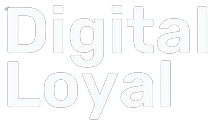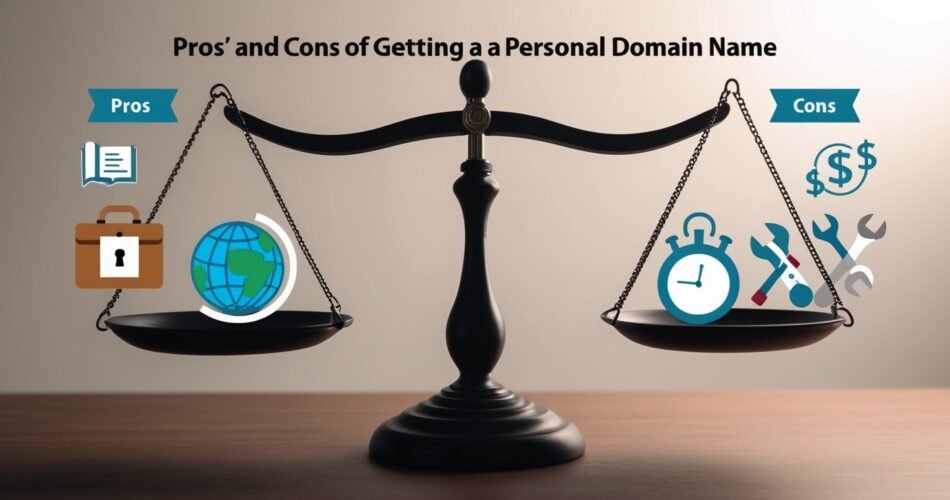Table of content
Introduction
In today’s digital landscape, establishing an online presence is no longer optional—it’s essential. Whether you’re a professional looking to showcase your portfolio or someone who simply wants to manage their online identity, a personal domain name can be a powerful tool. But is it the right move for you? This article delves into the pros and cons of getting a personal domain name, helping you make an informed decision.
What is a Personal Domain Name?
A personal domain name is a unique web address that represents you. It often includes your name or a variation of it, such as www.yourname.com. Unlike professional domains, which might represent a business or organization, a personal domain is all about you—your interests, your work, and your online identity.
Why Consider Getting a Personal Domain Name?
Owning a personal domain name offers numerous advantages. It allows you to establish a strong online identity, adding a layer of professionalism and credibility to your digital presence. With a personal domain, you have full control over how you’re perceived online, which is increasingly important in a world where first impressions are often made through a quick Google search.
Pros of Getting a Personal Domain Name
Enhanced Professionalism
A personal domain name immediately sets you apart. Instead of relying on free platforms with generic URLs (like yourname.wordpress.com), having your own domain (www.yourname.com) shows that you’re serious about your online presence. It’s like handing out a business card that leaves a lasting impression.
Improved Search Engine Visibility
Search engines favor unique and specific domain names. By owning a personal domain, you can improve your visibility on search engines like Google. This means that when someone searches for your name, your personal website is more likely to appear at the top of the results, making it easier for people to find you.
Control Over Your Online Presence
In an age where privacy is a growing concern, a personal domain name gives you control over the information that’s available about you online. Instead of relying on social media platforms, where your data might be used for advertising purposes, you can manage your own content and decide what others see.
Versatility
A personal domain name isn’t limited to just one use. You can create a personal blog, a portfolio to showcase your work, or even a landing page with links to all your social media profiles. The possibilities are endless, and the flexibility of a personal domain means you can adapt it as your needs change.
Email Personalization
One of the perks of owning a personal domain is the ability to create custom email addresses. Instead of using a generic Gmail or Yahoo email, you can have something like contact@yourdomain.com. This not only looks more professional but also makes your communications more personal.
Long-Term Investment
A personal domain name can be seen as a long-term investment. As your career grows and your online presence becomes more significant, the value of owning your own domain increases. It’s a digital asset that could become more valuable over time.
Enhanced Security
Owning a personal domain also provides a layer of security. It helps protect against identity theft and impersonation. By controlling your domain, you can ensure that the content associated with your name is authentic and trustworthy.
Cons of Getting a Personal Domain Name
Cost Considerations
One of the first things to consider is the cost. While domain names are relatively inexpensive, they aren’t free. You’ll need to pay for the initial registration and annual renewals, which can add up over time, especially if you also need hosting services and email packages.
Time Investment
Setting up and maintaining a personal domain requires time. You’ll need to design and update your website, manage content, and ensure everything runs smoothly. For those who aren’t tech-savvy, this can be a significant investment of time and energy.
Technical Challenges
If you’re not familiar with how websites work, managing a personal domain can be challenging. You’ll need to understand DNS settings, hosting options, and possibly even some basic coding. While there are tools to help, there’s still a learning curve involved.
Risk of Obsolescence
The digital world is constantly evolving, and there’s a risk that your personal domain could become obsolete. As trends change and new technologies emerge, you might find that your domain no longer serves its original purpose. Keeping it relevant requires ongoing effort.
Responsibility for Content
Owning a personal domain means you’re responsible for everything that appears on it. This includes legal and ethical considerations. You’ll need to ensure that the content you publish is accurate, up-to-date, and doesn’t infringe on anyone else’s rights.
Renewal Hassles
Domains need to be renewed annually, and if you forget, you could lose your domain. This could be particularly problematic if someone else registers it and uses it for malicious purposes. Keeping track of renewals is a necessary but often overlooked responsibility.
How to Choose the Right Personal Domain Name
Choosing the right domain name is crucial. It should be memorable, easy to spell, and ideally, include keywords relevant to your personal brand. Consistency is key—your domain should align with your name or the brand you’re trying to build. Before registering, check availability and ensure there are no trademark issues that could cause problems down the line.
Steps to Registering a Personal Domain Name
- Choose a Registrar: Select a reputable domain registrar like GoDaddy or Namecheap.
- Register Your Domain: Search for your desired domain name, and if it’s available, go ahead and register it.
- Set Up Hosting and Email Services: After registering, you’ll need to set up hosting to make your website accessible online. Consider adding email services for a custom email address.
How to Use a Personal Domain Name Effectively
Once you have your personal domain, make the most of it by creating a personal website or blog. Use it to showcase your portfolio, resume, or even as a hub for all your social media profiles. The key is to keep your content relevant, engaging, and up-to-date.
Alternatives to Personal Domain Names
If you’re not ready to commit to a personal domain, there are alternatives. Free hosting platforms like WordPress.com or Blogger allow you to create a website without purchasing a domain. Social media profiles can also serve as a digital identity, although they don’t offer the same level of control or professionalism as a personal domain.
Real-Life Examples of Successful Personal Domains
- Oprah Winfrey: Oprah’s personal domain, https://www.oprah.com/, is a popular destination for her fans, featuring content related to her talk show, Harpo Productions, and charitable endeavors.
- Barack Obama: Former President Obama’s personal domain, https://barackobama.com/, serves as a platform for his continued engagement with the public and his philanthropic work.
Conclusion
In summary, getting a personal domain name offers a mix of benefits and challenges. On the positive side, it enhances your professionalism, improves your search engine visibility, and gives you control over your online presence. However, it’s important to weigh these benefits against the potential costs, time investment, and technical challenges. Ultimately, whether or not to get a personal domain name depends on your goals, resources, and how you plan to use it. If you’re committed to building and maintaining your online identity, a personal domain name is a valuable asset that can pay off in the long run.
FAQs
1. How much does it cost to maintain a personal domain name?
The cost of maintaining a personal domain name can vary. Typically, domain registration costs between $10 to $20 per year. If you add hosting services, email packages, and privacy protection, the cost can increase to around $50 to $100 annually.
2. Can I use my personal domain name for email only?
Yes, you can use your personal domain name exclusively for email. This allows you to create a custom email address (e.g., contact@yourdomain.com) without needing to set up a full website.
3. What happens if I don’t renew my domain name?
If you fail to renew your domain name, it will expire and eventually become available for others to register. You may have a short grace period to renew it, but if someone else registers it after it expires, you could lose access to it permanently.
4. Is it necessary to have technical knowledge to manage a personal domain?
While some technical knowledge is helpful, many domain registrars offer user-friendly tools that make it easier to manage your domain. You don’t need to be a tech expert, but being willing to learn the basics of domain management is important.
5. How can I protect my personal domain from being hacked?
To protect your personal domain from hacking, use strong, unique passwords and enable two-factor authentication (2FA) for your domain registrar account. Regularly monitor your domain’s activity and keep your contact information up-to-date to ensure you receive important notifications.


